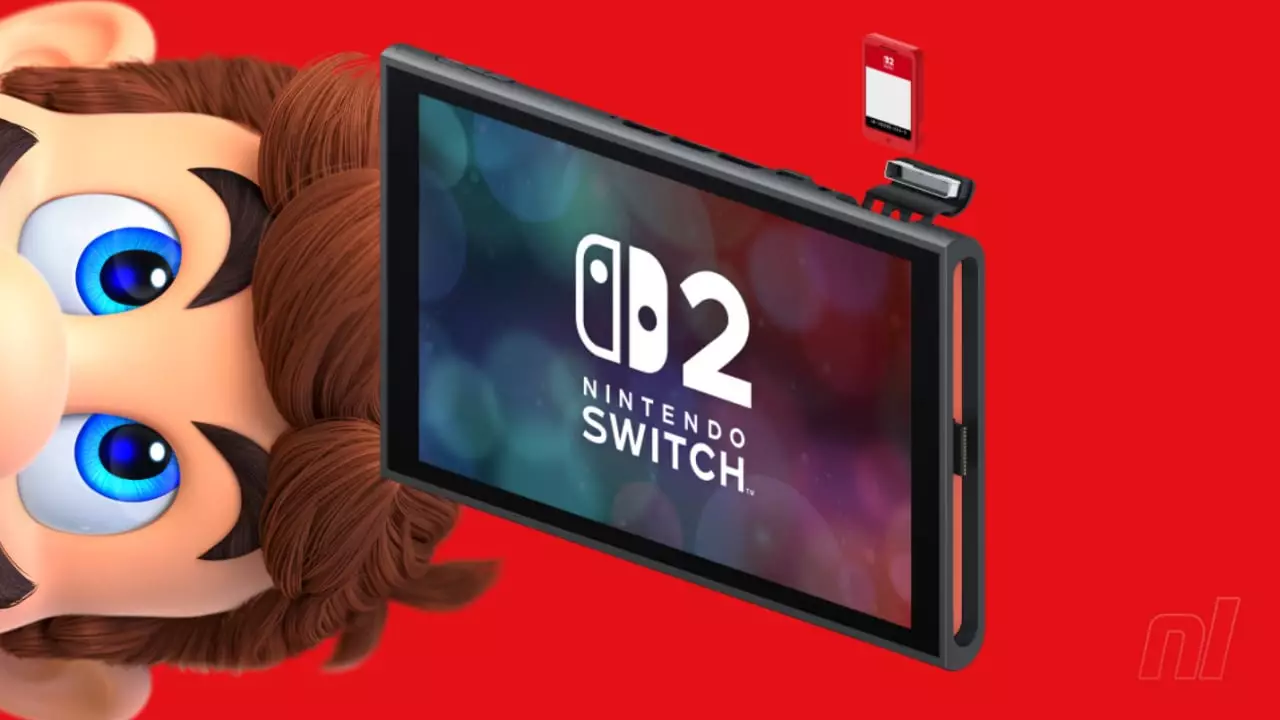In a world where digital and physical gaming coalesce, Nintendo’s introduction of Game-Key Cards has raised eyebrows among enthusiasts and casual gamers alike. While the Nintendo Switch has long prided itself on offering both physical cartridges and robust digital downloads, these Game-Key Cards appear to be a retrograde step that prompts a host of questions regarding the future of physical gaming. Essentially, Game-Key Cards act as digital keys encased within a physical format, allowing players to download games instead of storing them on the cartridge. At face value, one might think there’s nothing inherently wrong with this concept; after all, it combines the best of both worlds. Or does it?
A Step Backwards for Physical Media
However, the reality is starkly different. When you delve deeper into the mechanics of Game-Key Cards, you realize that they serve only as a key that unlocks a downloadable version of the game, rather than providing the content within the card itself. This detail is deeply troubling for traditionalists who treasure the tactile experience of holding physical media. Imagine walking into a game store, picking up a splendidly crafted box, and only realizing that the content you paid for is not even contained within it. Instead, you are provided with a means to download digital data—a billion-dollar industry that increasingly places physical objects in an odd position of redundancy.
The implications of this shift extend beyond mere perception. By purchasing these cards, consumers are essentially investing in the promise of a digital experience while still being tethered to the original limitations that physical game ownership brings. You must now deal with the potential of inadequate storage space on your console—an issue that has plagued gamers from the outset. The pressing need to clear up space can turn an eagerly anticipated gaming session into a cumbersome chore, reducing the pleasure it should ideally bring.
Questionable Value for Third-Party Developers
From a developer’s perspective, Game-Key Cards may appear as a convenient cost-cutting measure. For third-party developers, they circumvent the need to produce large-sized cartridges that meet Nintendo’s improved transfer speeds, essentially allowing publishers to package their games in a way that feels like a half-measure. The competitive landscape of gaming often requires developers to cut corners to save costs and maximize profits, yet these cards risk diminishing the perceived value their games command at retail.
Content on a cart has historically offered a tangible acknowledgment of quality. Players can feel a sense of reward and satisfaction when they own a physical copy of a game. The introduction of Game-Key Cards threatens to dissolve that feeling by inserting ambiguity into what it means to own a game. As the digital realm continues to gain ground, one can’t help but wonder if consumers are unwittingly signing up for a future where physical ownership is but a remnant of nostalgia.
The Influence on Consumer Trust
What does this mean for consumer trust? Trust is a fundamental pillar of the consumer-brand relationship, and Nintendo’s choice to embrace Game-Key Cards presents a dilemma. Are gamers being misled into believing they are purchasing a physical game when in reality, they are snapping up mere access to a digital product? This tactic could easily backfire, eroding Nintendo’s reputation among loyal fanbases who expect integrity in their gaming experiences.
Furthermore, as we navigate this new gaming paradigm, consumers may grow increasingly skeptical of companies that prioritize profit over user experience. The gaming community thrives on brand loyalty, and a misstep like this could severely undermine that bond.
The Future of Physical Gaming
As we look toward the horizon of gaming’s evolution, the introduction of Game-Key Cards serves as a signal flare—alerting us to the perils of complacency in pursuing innovation. With the emergence of this hybrid approach, it is crucial for consumers to question what it means to truly own a game. As digital transformations continue to reshape the gaming landscape, the industry may inadvertently transform fan expectations into a new era defined more by digital accessibility and less by tangible ownership.
The implications of this shift extend beyond the immediate realms of consumer satisfaction into the broader implications for the future of gaming. Are we prepared to relinquish our grip on physical media in the name of advancement? Time will tell.

